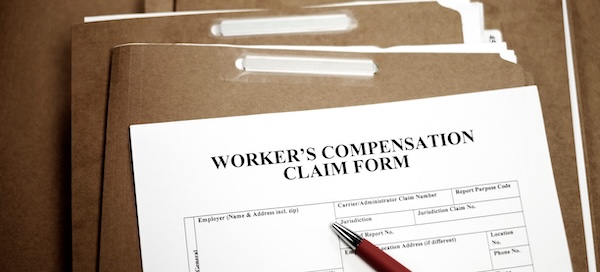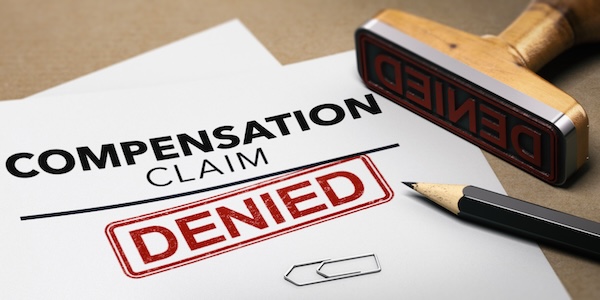Experienced Legal Support for Your Workplace Injury Claim
Workplace accidents can happen in any environment, and they often result in injuries ranging from back pain and broken bones to twisted necks or more severe conditions caused by repetitive motions or heavy lifting. No matter the severity of your injury, if you’ve been hurt on the job, you are entitled to workers’ compensation benefits that can help cover medical bills, lost wages, and other essential care.
Navigating the workers’ compensation system can be complex, which is why having experienced legal professionals, such as a Daytona Beach workers’ compensation lawyer, is crucial. A skilled workers’ compensation attorney can help you understand your rights and ensure that you receive the maximum compensation you deserve. This can include coverage for medical treatment, future medical expenses, lost income, and support for long-term care if your injury leads to permanent disabilities.
In addition to covering immediate medical needs and lost wages, workers’ compensation can provide support for ongoing treatment and rehabilitation, including therapy or specialized medical care. If your injury was caused by the negligence of another party, there may also be an opportunity to pursue additional compensation through a third-party lawsuit. An experienced attorney can help you explore all your options to ensure that you receive the full compensation for your workplace injuries.
What is Workers’ Compensation?
Workers’ compensation is a form of insurance that provides financial and medical benefits to employees who are injured or become ill as a result of their job. The purpose of workers’ compensation is to ensure that employees receive the support they need to recover without the need to prove fault or sue their employer.
If you’re an injured employee, workers’ compensation can cover:
- Medical treatment: This includes doctor visits, hospital care, surgeries, and medications related to your injury.
- Lost wages: If you’re unable to work while recovering, workers’ compensation provides income replacement to help support you financially.
- Future medical expenses: If your injury requires long-term treatment, workers’ compensation can cover ongoing medical costs.
In exchange for these benefits, employees typically cannot sue their employer for the injury, which makes workers’ compensation a “no-fault” system. Instead, employees simply file a claim to receive the necessary benefits to recover from their work-related injury or illness.
Common Workplace Injuries
Workplace injuries are diverse and can result from various factors, including physical strain, hazardous environments, and accidents. Some of the most common types of injuries employees face include:
- Slips, Trips, and Falls: These injuries are among the most frequent in various industries, particularly in environments where wet or uneven surfaces exist. Falls can result in sprains, fractures, head trauma, or more severe injuries, depending on the severity of the incident.
- Back and Neck Injuries: Often caused by improper lifting techniques, repetitive motion, or long hours spent in poor posture, back and neck injuries can range from minor strains to debilitating conditions, such as herniated discs or spinal cord injuries. These injuries often result in prolonged recovery periods and can lead to permanent disabilities.
- Repetitive Stress Injuries (RSI): Common in office settings and industrial workplaces, RSIs, such as carpal tunnel syndrome, are caused by repetitive motions that strain muscles and tendons over time. These injuries typically affect the hands, wrists, elbows, and shoulders, leading to chronic pain and decreased function.
- Lacerations and Cuts: Often occurring in manufacturing, construction, or food service industries, lacerations and cuts can result from sharp tools, machinery, or accidents involving equipment. While some injuries are superficial, others can cause significant blood loss or permanent scarring.
- Burns: Workplace burns can occur in environments involving chemicals, hot surfaces, or electrical equipment. Burns may range from first-degree, affecting only the outer skin, to third-degree burns, which can damage deeper layers of tissue and require extensive medical treatment.
- Falls from Heights: Common in construction, maintenance, and warehouse environments, falls from ladders, scaffolding, or elevated platforms often result in serious injuries, including broken bones, traumatic brain injuries, or spinal cord damage.
- Head Injuries: These injuries often arise from accidents involving falling objects, vehicle collisions, or machinery malfunctions. Head injuries can result in concussions, skull fractures, and traumatic brain injuries, which may have long-term effects on cognitive function.
- Occupational Diseases: Employees exposed to hazardous substances or environments may develop chronic conditions over time. Examples include lung diseases from inhaling dust or fumes, hearing loss from exposure to loud machinery, and skin conditions due to chemical contact.
Each type of work related injuries carries its own potential complications and treatment requirements, which is why it is important for injured workers to understand their rights and seek appropriate medical care and compensation. An experienced workers’ compensation attorney can assist in navigating claims and ensuring that individuals receive all benefits to which they are entitled.
Steps to Take If You’re Hurt on the Job
Suffering a workplace injury can be overwhelming, but taking the right steps early on can make the process of receiving workers’ compensation smoother. Follow these essential steps to protect your rights and ensure you receive the compensation you deserve:
Report the Injury Immediately
As soon as you’re injured at work, report the incident to your supervisor or employer. It’s crucial to notify them right away, as failing to report the injury within 30 days may result in your workers’ compensation claim being denied.
Seek Medical Treatment
Get medical attention from a provider authorized by your employer or their insurance company as an injured worker. This not only ensures your health is cared for but also establishes important documentation of your injury. Make sure your doctor records all relevant details about your injury and symptoms, as this will serve as crucial evidence for your workers’ comp claim.
Document Your Injury with Photos
If your injuries are visible, take clear photos of them as evidence. These images will help substantiate your claim by proving that the injury occurred. Photos can be shared with your employer, insurance company, and workers’ compensation attorney to strengthen your case, especially if there are challenges in receiving fair compensation.
File a Workers’ Compensation Claim
Ensure that a workers’ compensation claim is filed with the appropriate authorities. Keep a copy of the claim for your records. At Florida Lawyers 360, our team of experienced workers’ compensation attorneys is here to guide you through the claim filing process and ensure all necessary paperwork is submitted correctly.
In Florida, it’s important to file your petition for benefits within two years from the date of the injury. Our free consultation can help you understand the benefits you’re entitled to and begin the process of pursuing fair compensation.
The Role of a Workers’ Compensation Lawyer
A workers’ compensation lawyer plays a crucial role in helping injured employees navigate the complex workers’ compensation process. Their primary goal is to ensure that their clients receive fair compensation for their injuries or illnesses.
How a Workers’ Comp Lawyer Can Help with Your Claim
A workers’ compensation lawyer can help with your claim in several ways:
- Understanding Your Rights: They can help you understand your rights and options under workers’ compensation laws, ensuring you are fully informed about the benefits you are entitled to.
- Filing a Claim: They can assist you in filing a claim and ensuring that all necessary documentation is submitted accurately and on time.
- Negotiating with the Insurance Company: They can negotiate with the insurance company to ensure that you receive fair compensation for your injuries or illnesses. This includes advocating for the full extent of your medical expenses, lost wages, and any other benefits you are entitled to.
- Representation in Court: If your claim is denied or if you need to appeal a decision, a workers’ compensation lawyer can represent you in court, providing legal expertise and support throughout the process.
Duties of a Workers’ Compensation Attorney
The duties of a workers’ compensation attorney include:
- Filing Claims and Appeals: They handle the filing of claims and appeals on behalf of their clients, ensuring that all paperwork is completed correctly and submitted within the required timeframes.
- Negotiating with Insurance Companies: They negotiate with insurance companies to ensure that their clients receive fair compensation. This involves presenting evidence, countering low settlement offers, and advocating for the injured worker’s best interests.
- Court Representation: If necessary, they represent clients in court, providing legal arguments and evidence to support the claim.
- Ensuring Entitlement to Benefits: They ensure that clients receive all the benefits they are entitled to under workers’ compensation laws, including medical treatment, lost wages, and any additional compensation for permanent disabilities.
Compensation You Can Recover in a Workers’ Compensation Claim
When you file a workers’ compensation claim in Florida, you may be entitled to various types of compensation to help cover the financial burden of your injury or illness. The goal of workers’ compensation benefits is to ensure that injured workers are supported during their recovery and can cover essential expenses. Below are the types of compensation you can recover:
Medical Bills and Treatment Costs
Your workers’ compensation benefits will cover the cost of medical treatment related to your injury or illness. This includes:
- Doctor visits
- Hospital stays
- Surgeries
- Physical therapy
- Prescription medications
- Medical equipment (such as crutches or wheelchairs)
The treatment must be authorized by your employer or their insurance company to be covered under your claim.
Lost Wages and Income Replacement
If you’re unable to work due to your workplace injury, workers’ compensation will replace a portion of your lost income. Typically, you’ll receive two-thirds of your average weekly wage, up to a maximum amount set by Florida’s workers’ compensation laws (currently $575 per week).
- Temporary Total Disability (TTD): If your injury prevents you from working for a period of time, you may receive compensation for the duration of your recovery.
- Temporary Partial Disability (TPD): If you can return to work but at reduced capacity or part-time, you may still be entitled to compensation for the wages you lose as a result of working fewer hours.
Permanent Disability Benefits
If your injury results in long-term or permanent disability, you may be entitled to additional compensation for the lasting effects of your condition. This can include:
- Permanent Partial Disability (PPD): A lump sum payment if you have a permanent loss of function or limitation.
- Permanent Total Disability (PTD): If your injury prevents you from ever returning to work, you may receive ongoing benefits until you reach retirement age.
Rehabilitation and Vocational Training
If your injury requires rehabilitation or you are unable to return to your previous job due to disability, vocational rehabilitation benefits may be available. These benefits help with:
- Job retraining to learn new skills for a different role
- Assistance with job placement to find new employment opportunities
- Medical rehabilitation services to help you regain lost physical functions
Travel Expenses for Medical Treatment
If you need to travel for medical appointments, such as seeing specialists or attending physical therapy, workers’ compensation can cover the cost of transportation. This includes mileage reimbursement and other necessary travel expenses related to receiving treatment for your injury.
Death Benefits
In the unfortunate event that a workplace injury leads to death, death benefits can be paid to the surviving spouse, children, or dependents. These benefits cover funeral expenses, as well as compensation for lost financial support.
Denied Workers’ Compensation Claims
If your workers’ compensation claim is denied, it’s essential to understand the reasons behind the denial and what you can do to appeal the decision.
Common Reasons for Denied Claims
Some common reasons for denied workers’ compensation claims include:
- Non-Work-Related Injury: The insurance company may claim that the injury or illness is not work-related, arguing that it occurred outside of work or is not connected to job duties.
- Late Reporting: The insurance company may claim that the employee did not report the injury or illness in a timely manner, which can be grounds for denial.
- Insufficient Documentation: The insurance company may claim that the employee did not provide sufficient documentation to support their claim, such as medical records or witness statements.
- Ineligibility: The insurance company may claim that the employee is not eligible for benefits under workers’ compensation laws, possibly due to their employment status or the nature of their job.
In these situations, it’s crucial to have an experienced workers’ compensation attorney who can help you navigate the appeals process and ensure that you receive the benefits you deserve. An attorney can gather additional evidence, represent you in hearings, and advocate on your behalf to overturn the denial and secure the compensation you need for your recovery.
Frequently Asked Questions About Workers’ Compensation
How much does it cost to hire a workers’ compensation lawyer in Florida?
Hiring a workers’ compensation lawyer typically involves no upfront costs. Lawyers often work on a contingency fee basis, meaning they are only paid if you win your case and receive workers’ compensation benefits.
What should I do if my workers’ compensation claim is denied in Florida?
If your Florida workers’ compensation claim is denied, the first step is to meet with your employer or their insurance company to determine the reason for the denial. If the issue can be resolved outside of court, it may be easier to move forward with your claim.
Can I be fired for filing a workers’ comp claim in Florida?
Under Florida law, an employer cannot fire an employee for filing a workers’ compensation claim. This is considered illegal retaliation. However, employers may adjust job positions or duties if the employee is unable to work due to an injury.
Is there a time limit to file a workers’ compensation claim in Florida?
Yes, in Florida, you must file your workers’ compensation claim within two years from the date of the injury. If you are already receiving benefits and need to file for additional compensation, you must do so within one year of your last payment.
Can I sue my employer after filing a workers’ compensation claim in Florida?
Generally, once you file a workers’ compensation claim in Florida, you cannot sue your employer for the injury. However, there may be exceptions, especially if a third party caused the injury. It’s best to consult with a workers’ compensation attorney to understand your options.
Can an independent contractor file a workers’ compensation claim in Florida?
In most cases, independent contractors in Florida cannot file a workers’ compensation claim unless they work in the construction industry. Independent contractors are not considered employees, so they are usually not eligible for benefits unless they meet specific criteria.
What is my workers’ compensation claim worth in Florida?
The value of your workers’ compensation claim in Florida depends on several factors, including:
- Medical bills from authorized physicians for injury treatment
- Rehabilitation costs if the injury leads to a loss of bodily function
- A percentage of your lost wages due to your inability to work
- Prescription medications needed during recovery
- Travel expenses related to medical appointments
- Income replacement benefits, which cover two-thirds of your average weekly wage (up to a cap of $575 per week)
- Permanent Partial Disability benefits, if your physician assigns a disability rating based on the American Medical Association guidelines
Helpful Resources on Workers’ Compensation
If you’re navigating the workers’ compensation process, the following resources from Florida Lawyers 360 can provide valuable insight and support. These articles offer detailed information on various aspects of workers’ comp claims and legal rights to ensure you are well-informed:
Workers’ Comp Structured Settlement vs Lump Sum
Learn about the differences between structured settlements and lump-sum payments in workers’ compensation claims and how each option may impact your financial future.
Workers’ Comp Permanent Disability Evaluation
Understand the process of getting a permanent disability evaluation in workers’ compensation cases, and how it can affect your benefits and long-term support.
Fired for Filing a Workers’ Comp Claim
Explore your legal rights if you’ve been fired after filing a workers’ compensation claim and what steps you can take to protect yourself.
Difference Between Workers’ Comp vs Personal Injury
Find out how workers’ compensation differs from personal injury lawsuits, and what you need to know about pursuing each type of claim.
Occupational Disease and Workers’ Comp Benefits
Learn how occupational diseases like respiratory conditions or hearing loss may qualify for workers’ compensation benefits and the process involved in filing a claim.
Reasons Workers’ Compensation Claims are Denied
Understand common reasons why workers’ compensation claims are denied and how to address potential issues to increase your chances of approval.
These resources are designed to help you navigate the workers’ compensation process, protect your rights, and maximize your benefits. Feel free to reach out to Florida Lawyers 360 for any legal assistance along the way.
Ready to Get the Compensation You Deserve?
If you’ve been injured at work, navigating the workers’ compensation process can be overwhelming. At Florida Lawyers 360, our team of experienced workers’ compensation attorneys is here to guide you every step of the way. We’ll ensure you receive the full benefits you’re entitled to, whether it’s for medical bills, lost wages, or future medical expenses.
Don’t let the complexity of the system stand in the way of your recovery. Contact Florida Lawyers 360 today for a free consultation, and let us help you secure the compensation you deserve.
Your recovery and financial security are our priority—don’t wait to get the legal support you need.







